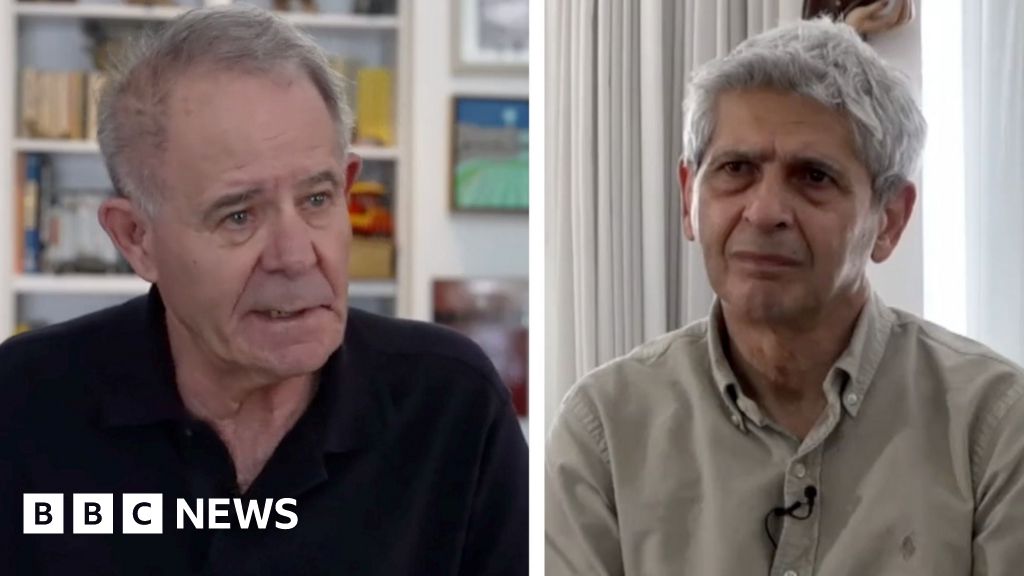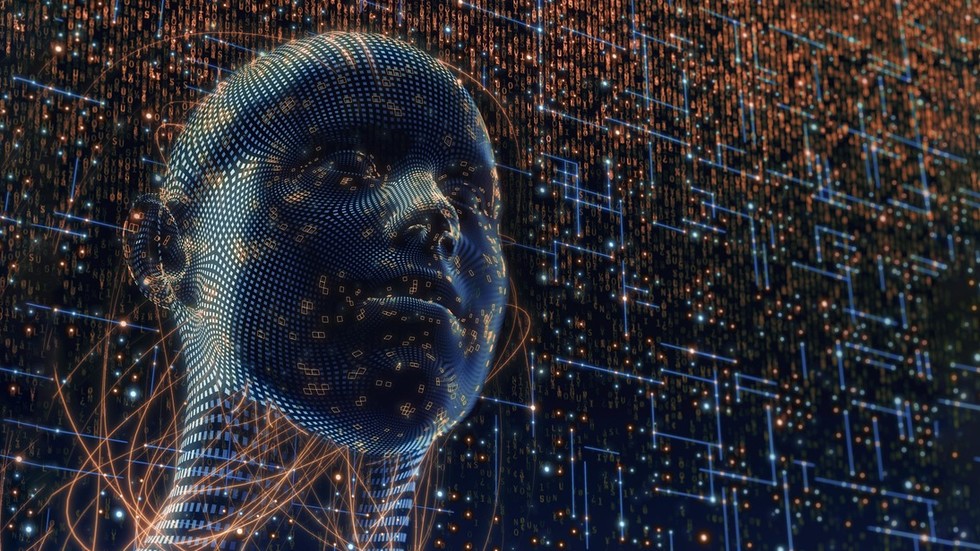There’s more than just Trump tariffs spooking movie makers in Cannes this year.
Artificial intelligence has been the talk of the French Riviera gathering, hailed by supporters as a boon for an industry gnawed by self-doubt – and bemoaned by critics as a killer of creativity and jobs.
It has even found its way into movie plots, whether in the fearsome shape of the ‘Entity’ confronting Ethan Hunt in the latest “Mission: Impossible” or as a somewhat manipulative virtual assistant for a writer in search of inspiration in Yan Gozlan’s thriller “Dalloway” – two films that screened out of competition.
Mirroring its lightening-pace development in other industries, artificial intelligence can now be used at every stage of the moviemaking process: to write screenplays, create soundscapes or sets and even rejuvenate characters, as in Robert Zemeckis' “Here”, starring Tom Hanks and Robin Wright.
To display this content from , you must enable advertisement tracking and audience measurement.
Trying to resist it is both futile and counterproductive, one industry worker told a packed roundtable at the Marché du Film, the world’s busiest film market that runs parallel to the festival.
“The wave is coming and it's impossible to stop it,” he warned. “Our only option is to surf on it.”
Scripts vetted by digital audiences
As a bastion of arthouse cinema and the world’s glitziest movie gathering, Cannes always aims to strike a balance between auteur worship and Hollywood star power – and between devotion to the past and turning to the future.
Festivalgoers looking for clues into the future of the movies have a whole new venue this year, a 1,000 square-metre Village Innovation overlooking Cannes’ old port. Part of the film market, the Village has been hosting a raft of technology and innovation-focused events, largely dominated by AI’s fast-expanding role in the industry.
Cannes says its role is to inform the debate, without weighing in.
“It’s not the market’s role to take a position on whether technology is good or bad. Our role is to explain what’s happening,” market head Guillaume Esmiol told Deadline ahead of the festival. “With AI, whether you like it or not, you still have to understand what’s happening.”
To display this content from YouTube, you must enable advertisement tracking and audience measurement.
One of your browser extensions seems to be blocking the video player from loading. To watch this content, you may need to disable it on this site.

12:01
Strategically placed at the entrance to the Village, analytics company Largo.ai has developed tools it says can make moviemaking easier, faster and significantly less risky by anticipating audience reactions. Its AI models create ‘digital twins’ based on surveys of real people, copying their behaviour and reactions to predict how audiences might respond to a script, a scene or an actor.
“Based on a screenplay or video, we can assess the emotional reactions of viewers. We can test the interest aroused by a scene or even a casting choice,” explains Largo.ai’s sales representative Alex Gocke.
“Of course, all these people have given their consent,” adds Gocke, who says the company only works with data that is legally accessible, either in the public domain or through agreements with partners.
Founded five years ago in Lausanne, the Swiss start-up raised $7.5 million from US-based investors earlier this year. Its backers include Sylvester Stallone, a recently appointed Hollywood “special ambassador” for US President Donald Trump, whose plans to slap tariffs on movies produced in “foreign lands” have roiled the industry and dampened the mood at Cannes’ film market.

LA-based Indeana Underhill, whose non-profit Cinematography for Actors (CFA) helps young filmmakers develop their projects, is enthusiastic about Largo.ai's platform.
“There’s a lot of criticism of AI in the industry, but these kinds of tools can be very useful for young filmmakers to get funding because they can present investors with statistics that match their scripts,” she explains.
Underhill plays down concerns that screenplays tailor-made for certain audiences would come at the expense of creativity.
“A lot of people make films for a specific audience, whether they're romantic comedies, horror films or science fiction,” she says. “Understanding what they like and what works is an important element to take into account in the creative process.”
Cloned voices
Opposite the Largo.ai booth, another rising star in the AI sector has been attracting plenty of attention in Cannes on the back of a voice-cloning controversy earlier this year that threatened to scupper Adrien Brody’s Oscars run.
Respeecher, a Ukraine-based company, was briefly in the eye of an awards-season storm when it emerged that it helped “finesse” Brody’s Hungarian dialogue in “The Brutalist”, merging his voice with that of a native speaker to ensure accuracy.
News of the voice editing sparked debate about the authenticity of Brody’s performance (which also involved months of training with a dialect coach), though it did not prevent him from winning Best Actor awards at the Oscars and the Golden Globes.

Another Oscars frontrunner, Jacques Audiard’s gangster musical “Emilia Perez”, made similar use of Respeecher’s technology, using AI to extend lead actress Karla Sofía Gascón’s vocal range. Her singing voice was blended with that of French popstar Camille, who co-wrote the film.
Responding to controversies surrounding “The Brutalist” and “Emilia Perez”, the Academy of Motion Picture Arts and Sciences issued new rules in April stating that the use of AI and other digital tools would “neither help nor harm the chances of achieving a nomination” for the Oscars. The rules stress that the Academy will also “take into account the degree to which a human was at the heart of the creative authorship”.
Oleksandr Serdyuk, Respeecher’s co-founder and CEO, attributes the industry’s mistrust of innovation to a difficulty in understanding how AI instruments work. He says artificial intelligence should be seen as a tool empowering humans rather than a threat.

“The industry tends to think that anything associated with AI is designed to replace human beings. On the contrary, it enhances human creativity,” he says. “AI will never replace human creativity; it doesn’t have the capacity to do so.”
Putting guardrails in place
Ultimately, cost-cutting imperatives are likely to have the final say, unless regulation can shape the way AI evolves in the film industry.
James Cameron has recently suggested filmmakers could save up to 50 percent on big-budget films, without mass layoffs, by using artificial intelligence for visual effects. Netflix CEO Ted Sarandos, whose streaming behemoth is still at loggerheads with Cannes over French rules on theatrical distribution, says such use of AI could also make the movies “10 percent better”.
Cameron, however, has previously expressed doubt about AI being able to write “a good story” and phase out screenwriters – echoing a widely held view in the profession that AI models remain good research assistants but poor writers.
“We do have to worry about copyright theft and our ideas being scraped by AI. But as a writer, it’s still quite poor,” Katharina Gellein Viken, a screenwriter and co-founder of Metrotone Media, told a FRANCE 24 Debate programme on AI in the movies. “The question now is what guardrails do we put in place,” she added.
To display this content from YouTube, you must enable advertisement tracking and audience measurement.
One of your browser extensions seems to be blocking the video player from loading. To watch this content, you may need to disable it on this site.

41:37
Legislation governing AI is still in its infancy and moving forward in a piecemeal fashion. In June 2024, the European Union adopted regulations on artificial intelligence that also apply to the film and audiovisual industries, requiring transparency on the data used to train AI models and respect for copyright.
After historic strikes in 2023, Hollywood screenwriters and actors obtained several guarantees, including bans on imposing AI as a tool on writers and on the use of actors’ image or voice without their consent.
The fear, now, is that some of those guarantees may be rolled back under Trump, who has encouraged massive investment in AI since his return to the White House and is pushing to slash regulation.
“AI is a very powerful tool that is progressing extremely quickly, so it's legitimate to be a little afraid,” says screenwriter David Defendi, head of the Genario Studio that offers filmmakers guidance on how to use artificial intelligence in the first steps of a project.
“We don’t know how this technology will develop, and it’s actually very difficult to predict the damage it can do,” he adds. “That’s why governments need to legislate to regulate its use, and there’s still a lot to be done.”











 English (US) ·
English (US) ·